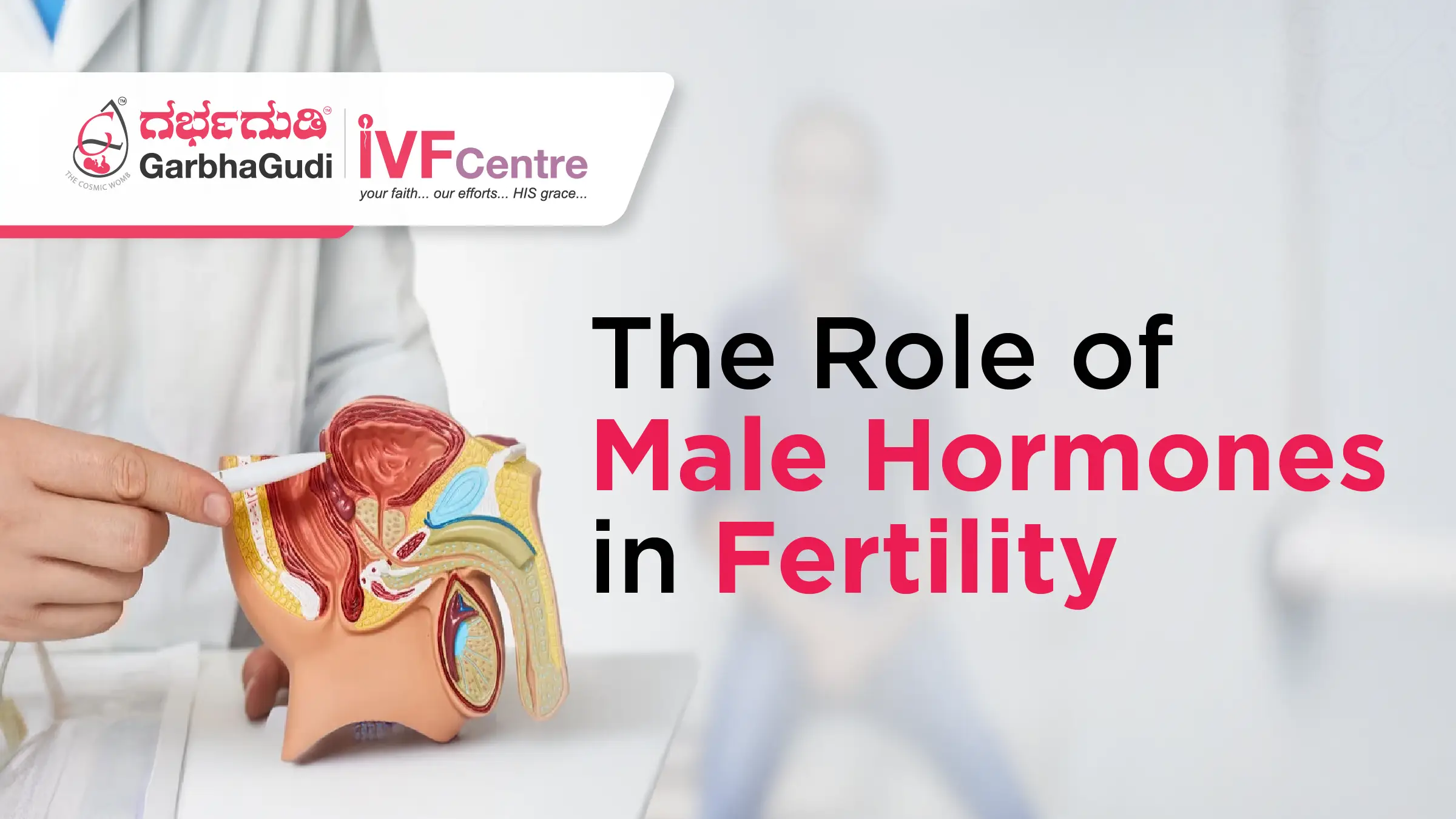Understanding the Role of Male Hormones in Fertility: How Testosterone Affects Reproductive Health

When we think about fertility, the first thing that often comes to mind is the woman’s role in conception. However, male fertility is just as crucial, and understanding the hormonal influences on male reproductive health can shed light on issues that might affect a couple’s chances of conceiving. One hormone that plays a significant role in male fertility is testosterone—but how exactly does it impact reproductive health?
What Is Testosterone?
Testosterone is the primary male sex hormone. It is responsible for many characteristics typically associated with men, such as muscle mass, deep voice, body hair, and overall energy levels. However, testosterone is not just about these external traits—it plays a crucial role in the male reproductive system.
Testosterone is produced primarily in the testicles and is vital for sperm production, maintaining a healthy libido, and regulating various aspects of male fertility.
How Testosterone Affects Male Fertility
Sperm Production (Spermatogenesis)
Testosterone directly impacts the process of spermatogenesis—the creation of sperm cells. Without sufficient testosterone, the production of healthy sperm can decrease. This means that even if the sperm are present, they may not be as viable or motile, making it harder to conceive.
Testosterone works together with other hormones like follicle-stimulating hormone (FSH) and luteinizing hormone (LH) to regulate sperm production. These hormones signal the testicles to produce sperm, and testosterone helps to maintain the environment that supports the maturation of these sperm.Libido and Sexual Function
Low levels of testosterone can lead to a reduced sex drive, which obviously impacts a man’s ability to conceive. Men with low testosterone may experience erectile dysfunction, a condition where it becomes difficult to achieve or maintain an erection. This can lead to challenges when trying to conceive naturally, as it interferes with regular sexual intercourse.Sperm Quality and Motility
Testosterone isn’t just about quantity—it also affects the quality of the sperm. Men with low testosterone levels often experience a decline in sperm motility (how well sperm can move) and morphology (the shape and size of the sperm). These factors are essential for the sperm to reach and fertilize an egg. Even with a good quantity of sperm, issues with motility can reduce the chances of conception.
What Happens When Testosterone Levels Are Too Low?
When testosterone levels fall below the normal range, it can have a profound impact on fertility. Low testosterone (also called hypogonadism) can occur for a variety of reasons, including aging, injury to the testicles, certain medical conditions, or lifestyle factors such as obesity, excessive alcohol use, or high stress levels.
Symptoms of low testosterone can include:
Reduced sperm count and motility
Erectile dysfunction
Low libido
Fatigue and lack of energy
Mood swings or irritability
If left untreated, low testosterone levels can significantly reduce a man’s fertility. This is why it’s important for men to be proactive about their reproductive health and consult a healthcare provider if they notice signs of low testosterone.
Can Testosterone Therapy Help with Fertility?
Testosterone therapy is often used to treat low testosterone levels, but it’s important to understand that it may not always be the best solution for fertility. In fact, in some cases, testosterone replacement therapy (TRT) can lower sperm count further by disrupting the natural hormonal signals that stimulate sperm production. This is because supplementing testosterone can send a signal to the brain to stop producing the hormones that trigger sperm production.
For men trying to conceive, doctors may recommend other treatments that stimulate the natural production of testosterone or address underlying issues that are contributing to low fertility. These treatments could include clomiphene citrate (which stimulates the body to produce more testosterone naturally) or HCG (human chorionic gonadotropin), which mimics LH and helps boost sperm production.
How Can Men Maintain Healthy Testosterone Levels for Better Fertility?
There are several lifestyle changes and habits that can help maintain healthy testosterone levels and promote overall fertility:
Exercise Regularly
Regular physical activity, especially strength training and cardio, can help maintain healthy testosterone levels. However, it’s important not to overdo it—extreme exercise without adequate recovery can lower testosterone.Maintain a Healthy Weight
Being overweight or obese can contribute to lower testosterone levels. A balanced diet rich in nutrients, including healthy fats, proteins, and vitamins, supports hormonal balance.Manage Stress
Chronic stress leads to elevated levels of cortisol, a hormone that can negatively impact testosterone production. Finding healthy ways to manage stress, such as through relaxation techniques or mindfulness, can be beneficial.Avoid Excessive Alcohol and Smoking
Both smoking and excessive alcohol consumption can lower testosterone levels and negatively affect sperm quality. Cutting back on these habits can improve fertility.Sleep Well
Getting adequate sleep is crucial for maintaining healthy testosterone levels. Sleep helps regulate hormone production and is essential for overall well-being.Seek Professional Help
If you suspect low testosterone levels are affecting your fertility, it’s important to see a doctor or fertility specialist. A blood test can determine your testosterone levels, and your doctor can recommend the best course of action.
Conclusion
Testosterone is a vital hormone for male fertility, and understanding its role can help men address potential fertility issues. Maintaining healthy testosterone levels through lifestyle changes, regular check-ups, and professional guidance can support reproductive health and improve the chances of conception. If you or your partner are experiencing fertility challenges, don't hesitate to consult with a fertility specialist to better understand your options and take the first step toward growing your family.
At GarbhaGudi IVF Centre, we are here to support you throughout your fertility journey, offering personalized care and expertise to help you achieve your goals.